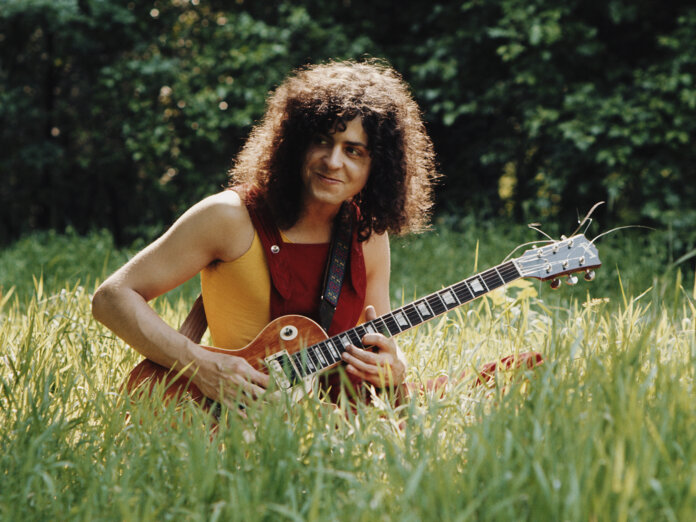Coming somewhere between biography and “making of”, this film by Ethan Silverman uses Hal Willner’s 2020 all-star tribute album as a jumping off point to explore the life and music of Marc Bolan. That includes a thorough rummage through the archive to find old interviews and clips of Bolan in ...
Coming somewhere between biography and “making of”, this film by Ethan Silverman uses Hal Willner’s 2020 all-star tribute album as a jumping off point to explore the life and music of Marc Bolan. That includes a thorough rummage through the archive to find old interviews and clips of Bolan in performance as well as contributions from contemporary musicians as they cycle through the studio to record with Willner.
- ORDER NOW: The Who are on the cover of the latest UNCUT
The format allows Silverman to create something more than a simple procedural narrative for the film. We get the biographical basics as well as opportunities to witness musicians in the studio reinterpreting Bolan’s music before going on to discuss different aspects of his appeal – such as his sexiness (Joan Jett, when recording “Jeepster”). Others can recount first-hand memories of Bolan during his heyday, notably Elton John who accompanies U2 on “Get It On”. Other contributions come from Ringo Starr, remembering how dinner with Bolan inspired “Back Off Boogaloo”, and Billy Idol delivering a story about the time he saw Bolan face down a hostile crowd at the Isle Of Wight. Younger musicians talk about their relationships with Bolan’s music, while David Bowie and John Peel chip in from beyond the grave. More personal context comes from Tony Visconti, Gloria Jones, Rolan Bolan and Jeff Dexter.
In old interview footage, Bolan comes across as articulate and switched-on, helped by a series of interviewers who take him and his music seriously – perhaps more so than you might expect given the way Bolan is often presented as a shallower, tween-friendly version of Bowie. Bowie, though, is the ghost who haunts the film, constantly threatening to overshadow Bolan – even in Bolan’s own film. We hear how they first meet as unknowns, painting Leslie Conn’s office; how they shared a similar vision of music, fashion and gender fluidity; how Bolan made it big but was leapfrogged by Bowie; of Bolan’s jealousy at Bowie’s American success; and finally see the two duetting, not quite as equals, on Bolan’s TV show, Marc, just days before Bolan’s death.
This Bowie-Bolan rivalry acts as an anchor for some of the film’s best moments – Cameron Crowe describes the way the British rock press had pop stars sniping at each other like “crabs in a bucket” before Bolan is heard taking a catty swipe at musicians who dress like Marlene Dietrich or clowns. Bowie’s own interviews about their relationship are a tad more magnanimous, partly because they are all taken from a time when he could afford to be generous given a) he was a megastar and b) Bolan was dead.
Meanwhile, Bolan’s music is reimagined by a panoply of stars. It’s not all big names – Nena, of “99 Red Balloons” fame, gets to sing “Metal Guru”, while Rolan Bolan sings “Children Of The Revolution”. These aren’t just the big T.Rex numbers either: Devendra Banhart channels the spirit of “Scenescof”, Father John Misty reinterprets “Main Man” while Beth Orton tackles “Hippy Gumbo”. The all-star band includes Jim White and Pete Thomas on drums, Van Dyke Parks pops up on piano while Wayne Kramer, Marc Ribot and Bill Frisell contribute guitar.
Nick Cave’s meditative version of “Cosmic Dancer” is the undoubted musical highpoint, as he recasts the song as a slow, earnest The Boatman’s Call-style ballad with beautiful string accompaniment. The non-musical highlight comes from the always excellent and enthusiastic Joe Elliott who spent three weeks lovingly copying out a book of Bolan’s poetry as an 11-year-old – he still has the exercise book, imprinted with Elliott’s own “ex libris” stamp.
Although it sometimes feels as if it’s geared towards a US audience, the archive footage alone makes this worth watching. Bolan comes across as an intriguing but surprisingly grounded figure and his musical performances still have infectious raucous energy. The film also acts as a tribute to Hal Willner, who died shortly after the album was completed.



